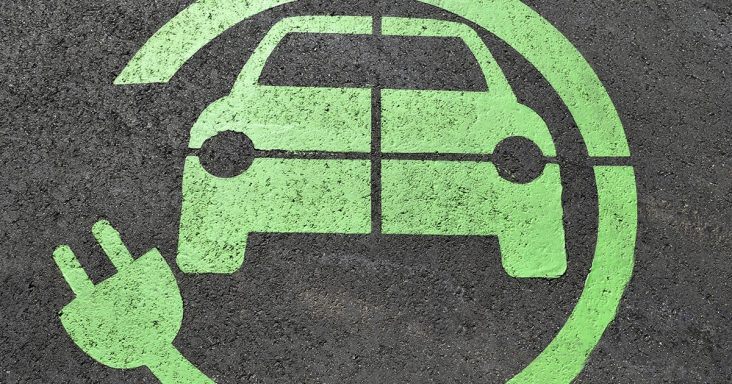Walmart to build thousands of EV charging station at U.S. stores, clubs
by April 6, 2023 2:30 pm 2,518 views

Walmart plans to build electric vehicle (EV) charging stations at thousands of its stores and clubs over the next six years. The retailer now has roughly 1,300 charging stations at more than 280 U.S. locations.
In Arkansas, Walmart has charging stations through a partnership with Electrify America dating back to 2018. The locations include Walmart stores in Clarksville, Forrest City, Hope, Little Rock and Rogers.
Walmart declined to disclose how many new charging stations will be built in Arkansas, but the goal for the retailer is to put stations coast to coast in order to provide more access to the growing number of households driving electric vehicles. The retailer said it plans to put approximately 4 stations at each location. Walmart also said it is in the process of finding suppliers, and it will own and operate the stations.
“With a store or club located within 10 miles of approximately 90% of Americans, we are uniquely positioned to deliver a convenient charging option that will help make EV ownership possible whether people live in rural, suburban or urban areas. Our goal is to meet the needs of customers and members where they live and open the road to those driving across the country,” said Vishal Kapadia, senior vice president of energy transformation at Walmart.
He said having easy access to fast charging has been one of the reasons families have opted out of making EV purchases. Kapadia said when Walmart builds out its network of stations, those concerns will be alleviated.
Tesla is the largest EV automaker in the market, but Ford, General Motors and others are working to bring more EV cars and trucks to market in the next few years. Automotive News reports there were approximately 1.35 million Teslas in the U.S. in December. The U.S. Environmental Protection Agency estimates there are roughly 3 million electric cars in the country.
Walmart is not the only company trying to capture the growing market share of EV charging revenue, especially following President Joe Biden’s Feb. 15 announcement of a plan to build 500,000 EV charging stations. The Biden Administration’s Infrastructure Law passed in 2021 allows for $7.5 billion in investments in EV charging stations along with $10 billion in clean transportation initiatives and $7 billion in EV battery components and materials. The plan also calls for the Federal Highway Administration to provide $2.5 billion over five years to states and localities to deploy publicly accessible charging and alternative fueling infrastructure in communities, including at schools, grocery stores, parks, libraries and apartment complexes.
Other companies building new charging stations include Tesla, Hertz, Pilot, General Motors, Travel Centers, Electrify America, Mercedes-Benz, Volvo, Starbucks, Frances Energy, Forum Mobility and Ford. The Biden Administration said the public investments will add more than 100,000 public EV charging stations that facilitate long trips and more access in rural communities.
Fortune Business Insights reported in January the global EV charging station market size is projected to be worth $111.9 billion by 2030. The report said North America’s EV charging market value was $3.46 billion in 2020 and is projected to be $13.64 billion in 2028.
Walmart has been open about its desire to add alternative revenue streams to its core business model. Selling gasoline and diesel has already become a big part of the retail giant’s business model comprising about 9% of the company’s total U.S. sales.
The charging stations at Walmart stores operated by Electrify America will typically cost around 43 cents per kWh for non-subscribers. Those who subscribe to Electrify America get a discount of about 12 cents, according to the company’s website. Walmart also has partnered with EVgo to expand its EV charging stations in the past two years. Walmart said it takes an average of 20 to 30 minutes to charge an EV at its stations.
Walmart has not said what it plans to charge at its own EV stations, but if the retailer follows its traditional pricing model, it will be slightly less than competitors at most locations. Kapadia also said Walmart seeks to bring the cost of EV charging down for households that seek a greener transportation model.
The U.S. Bureau of Transportation Statistics reports households spend an average of $11,000 annually on transportation costs with traditional fuels. It’s the second largest expenditure after housing. Rural households spend more on transportation than urban households at roughly $13,600 per year on traditional fuel, according to BTS.
